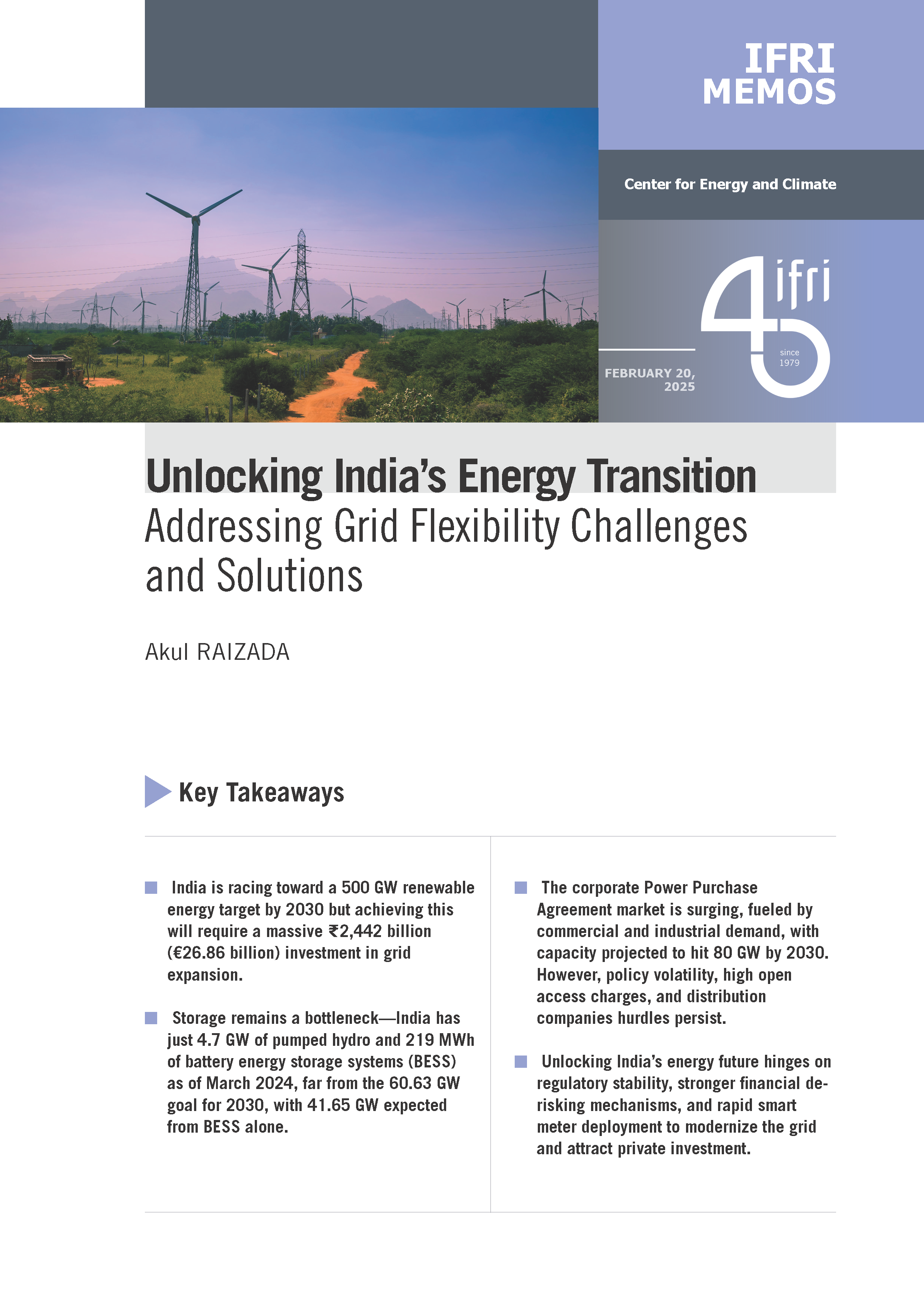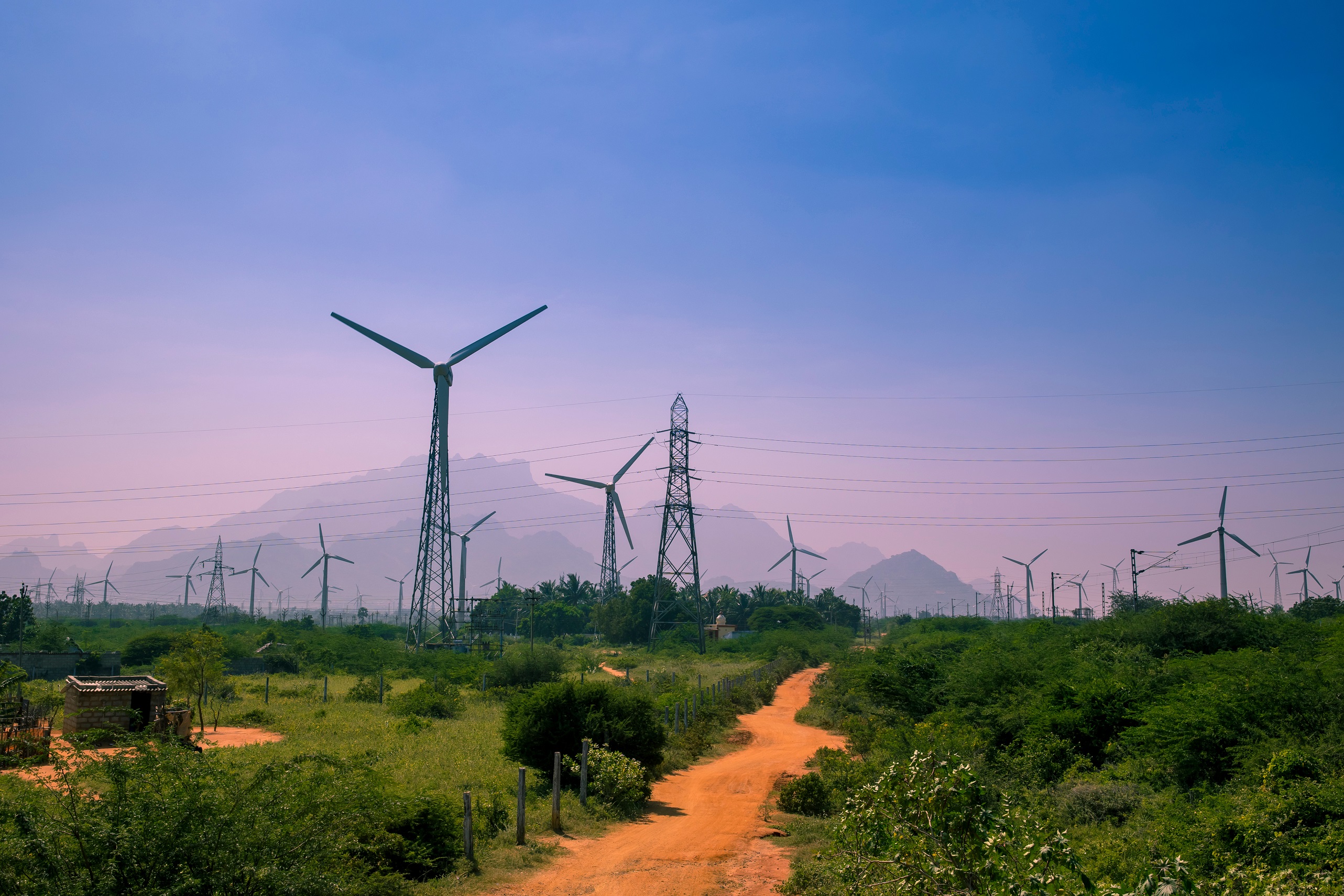Unlocking India’s Energy Transition: Addressing Grid Flexibility Challenges and Solutions

India is rapidly scaling up its renewable energy (RE) capacity, adding 15–20 GW annually, but the ambitious goal of 500 GW of non-fossil capacity by 2030 is at risk unless the pace accelerates.

This green transition is revealing significant vulnerabilities in the national grid. Solar and wind energy, with their inherent variability, depend on unpredictable weather patterns, unlike traditional power plants. This challenge is magnified by India’s tight operating frequency band of 49.90 Hz to 50.05 Hz , where even slight fluctuations can cause grid instability. To make matters worse, climate change is heightening the grid’s vulnerability.
- India is racing toward a 500 GW renewable energy target by 2030 but achieving this will require a massive ₹2,442 billion (€26.86 billion) investment in grid expansion.
- Storage remains a bottleneck—India has just 4.7 GW of pumped hydro and 219 MWh of BESS as of March 2024, far from the 60.63 GW goal for 2030, with 41.65 GW expected from BESS alone.
- The corporate PPA market is surging, fueled by commercial and industrial demand, with capacity projected to hit 80 GW by 2030. However, policy volatility, high open access charges, and DISCOM hurdles persist.
- Unlocking India’s energy future hinges on regulatory stability, stronger financial de-risking mechanisms, and rapid smart meter deployment to modernize the grid and attract private investment.

Available in:
Themes and regions
ISBN / ISSN
Share
Download the full analysis
This page contains only a summary of our work. If you would like to have access to all the information from our research on the subject, you can download the full version in PDF format.
Unlocking India’s Energy Transition: Addressing Grid Flexibility Challenges and Solutions
Related centers and programs
Discover our other research centers and programsFind out more
Discover all our analysesPlacing the EU on a Warfare Footing: Energy and Raw Materials Priorities for 2026
The year 2025 has confirmed that one must prepare for much worse in the field of geopolitics and geoeconomics as the intensity and frequency of shocks increase and as the European Union (EU) has no more stable flanks now that crises with the United States (US) become so frequent and reveal a systemic rift. In the world, barriers to trade multiply and dependencies are weaponized.
Brazil One Year Away from the October 2026 General Elections
Brazil’s general elections will be held on October 4, 2026, to elect the president, vice-president, members of the National Congress, governors, deputy governors and state legislative assemblies. For the presidential and gubernatorial elections, a second round will be held on October 25 if no candidate obtains a majority of the votes in the first round.
COP30: An Inflection Point for Climate Action and Governance
The 30th Conference of the Parties (COP30), opening in Belém, Brazil, on November 10th 2025, convenes at a perilous moment.
The Strategic Dimension of Skills in the Clean Industrial Deal
In the competitiveness and energy transition battles, the European Union (EU) must master a determinant factor: skills.











